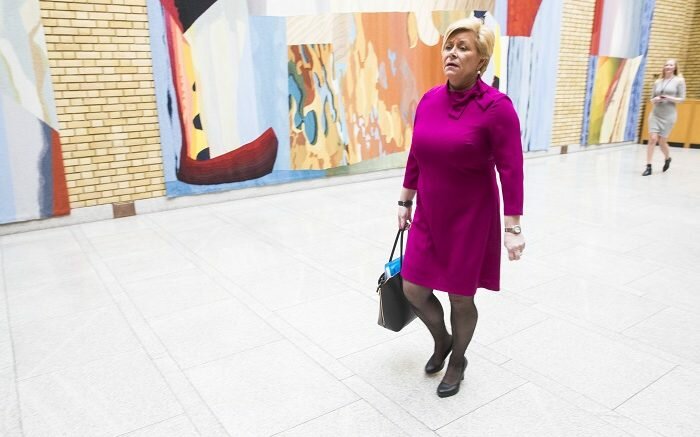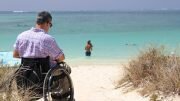The NRK license fee is changed, alcohol and tobacco taxes are adjusted according to the price inflation and it becomes more expensive to shop from foreign online stores. This is how the state budget will translate:
Food, drink and tobacco
- Alcohol tax will increase by 2 per cent, both for liquor, beer and wine. This is in line with the general price rise. The tax on light beer is also increased by around 2 per cent.
- The sugar tax for soft drinks remains. Thus, there will be no price drop for Norwegian soft drinks, as the soft drink producers had hoped for. On the contrary, the tax is adjusted upwards in the budget proposal.
- Tobacco tax will increass by 1.9 per cent for cigars, cigarettes, smoking tobacco, snuff and chewing tobacco, a straight price adjustment.
Cars and motoring :
- The CO2 tax for petrol increases by 6.8 per cent which will mean NOK 1.26 per liter next year. But to make up for this, the government is cutting the road tax (gasoline user tax) by 6.5 per cent for petrol and 5.0 per cent for diesel. The road user fee will be NOK 4.91 per liter next year, compared with 5.25 this year.
- The levy for bioethanol is cut by 54.9 per cent.
- The one-time charge for new cars is increased by 1.9 per cent. This fee does not apply to electric cars.
Current:
- Electricity tax is adjusted and will be increased by 1.9 per cent. This will mean 16.13 øre per kWh next year, against 15.83 this year.
License:
- The NRK license fee is removed, which has been known for a while. Instead, NRK is to be financed through the tax bill by reducing the personal allowance on the income tax. A household with two taxpayers will pay about the same license as before, the government said.
E-Commerce:
- As notified, the tax-free limit of NOK 350 is removed when you purchase goods online from abroad. Thus, these goods become more expensive. A system is created whereby the foreign online shops must register to pay VAT.
Tax and savings:
- The maximum property tax municipalities can charge, is further reduced down to 4 per cent.
- The limits for morgage savings for youths (BSU) are kept unchanged: The maximum saving amount per year is NOK 25,000, and the total maximum amount is NOK 300,000.
- The deduction for trade union subscription is kept at the same level as this year, at NOK 3,850.
- No changes are proposed that will affect the interest deduction. Thus, homeowners with loans will still be able to deduct interest charges on the tax in the same way as before.
Family and children:
- The child benefit is to increase by NOK 3,600 a year for children up to the age of six. This will happen from September 1, 2020.
- The maximum price for nursery care is increased to NOK 3,135 a month from 1 January next year. In August 2019, the maximum price was 3,040 kroner.
- The SFO parent payment will be capped for pupils in 1st and 2nd grade from the next academic year. The price per child should not exceed 6 per cent of household income.
- Fixed rates for support for children’s glasses will be introduced from March 1, 2020. The rate for ordinary glasses is set at NOK 1,200, while the rate for special custommade glasses is set at NOK 2,400. The measure is estimated to save NOK 122 million in 2020.
- Support for cosmetic tooth braces should be removed, the government believes. The restructuring is likely to reduce the number of children and adolescents who start cosmetic dental care from 30,000 to 20,000 a year, according to the Ministry of Health and Care Services.
- The ‘Cash support’ will remain at the same level as in 2019.
Health:
- The limit before getting a free pass for treatment from a doctor, psychologist and hospital (deductible ceiling 1) is increased from NOK 2,369 to NOK 2,460.
- For deductible ceiling 2, which applies among other things to physio therapy and certain dental treatments, the limit will increase from NOK 2,085 to 2,176. NOK
- The deductibles for doctor visits and health care will increase in line with expected wage growth.
- The rates for dental care benefits from the national insurance scheme are generally increased by about 2.2 per cent. This is somewhat lower than expected price and cost growth, and entails a saving for national insurance of about NOK 22 million.
Travel:
- The basic allowance for commuters increases from NOK 22,700 to NOK 23,100, in line with projected inflation.
- Air passenger fare tax is increased from NOK 75 to NOK 76.5 for travel with a final destination in Europe, while the rate for travel out of Europe changes from NOK 200 to 204.
Education:
- The plan to step up support for students to eleven months is now completed. The escalation has been gradual in recent years. At last year’s state budget, the students received one extra week of grant money, and thereby had support for ten months and three weeks of the year.
There is no tax deduction for people who pay a lot of toll charges.
© NTB Scanpix / #Norway Today





Be the first to comment on "This is how the state budget turns out in everyday life"